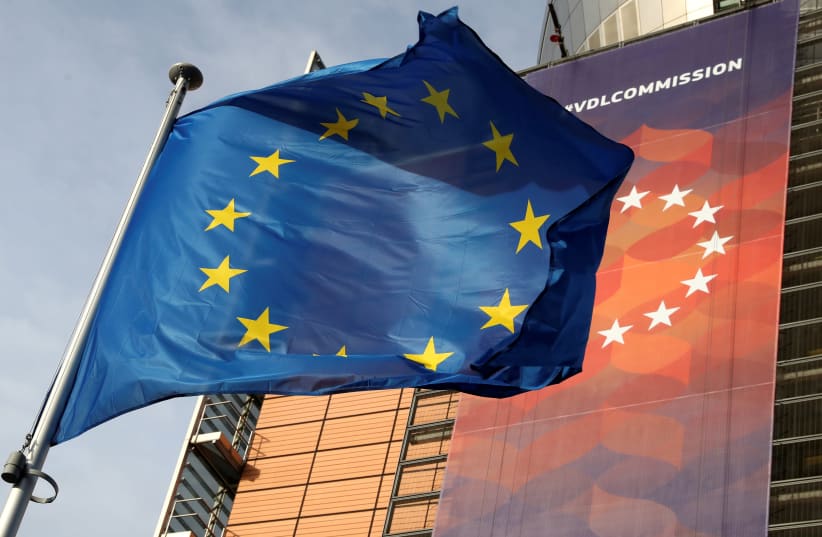The European Commission, the executive arm of the European Union, has published a new handbook for governments and EU agencies to utilize the definition of antisemitism drawn up by the International Holocaust and Remembrance Alliance and adopted by it in 2016.
The IHRA document includes a basic definition and 11 examples to illustrate what can constitute antisemitic acts and speech.
The European Commission began using the IHRA definition in 2017 and the European Parliament adopted it for use in the same year.
In its new handbook, the commission provides guidance for how the antisemitism definition can be used practically to combat antisemitism, including training police and law enforcement agencies, monitoring antisemitism and prosecuting it.
In particular, the commission’s handbook says that the IHRA definition can help law enforcement: to better recognize antisemitism and antisemitic crimes, record antisemitic crimes in a systematic manner, analyze and categorize antisemitic crimes in political and hate crime reports, and assess security threats and strengthen security for all parts of the population in a particular country.
In addition, the handbook says countries can appoint a state attorney or commissioner to combat antisemitism using the IHRA definition and include it in the curriculum for judges and state attorneys.
It noted that the Crown Prosecution Service in the UK recommends usage of the IHRA definition, and that Germany amended its criminal code in 2020 to allow for increased penalties for crimes, and to reference the IHRA when taking into account sentencing.
Another field in which the IHRA definition can be used is in education systems, the commission’s handbook says.
It said that education ministries, universities and schools could use the IHRA definition to enable teachers and educational professionals to identify and intervene against antisemitism, create safer places for Jewish students, challenge stereotypes and hatred at an early age of socialization, and record antisemitic incidents at educational institutions, enabling administrative staff to decide on what measures to take when they occur.
The commission said that “civil society” groups, including religious institutions and organizations, sports associations and other groups, could also utilize IHRA’s definition to support antisemitism prevention work, such as developing training manuals and facilitating workshops, cooperate with Jewish institutions, provide support services for victims of antisemitism, and improve data on antisemitic crimes and incidents below the threshold of a crime.
